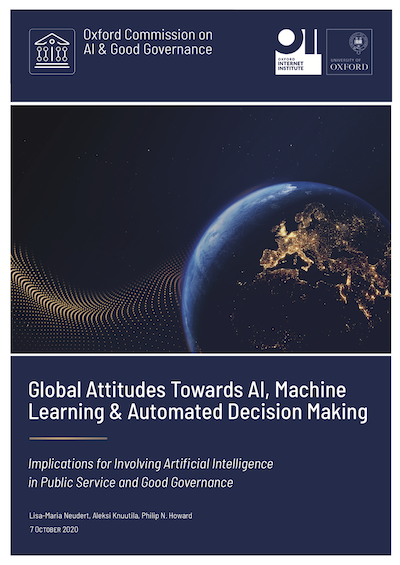
Lisa-Maria Neudert
DPhil Student
Lisa-Maria Neudert is a DPhil Student researching platform governance and regulation in response to mis/disinformation.

How do the world’s publics view the use of AI (Artificial Intelligence) and machine learning tools in decision making? Making use of international survey data, the authors analyze basic indicators of public perceptions about the potential harms and opportunities of AI.
Public understanding of AI – its risks and benefits – varies greatly around the world. More people in North America (47%) and Latin America (49%) think that AI will be harmful than in n Southeast Asia (25%) and East Asia (11%); optimism is the highest in China, where 9% believe that the development of intelligent machines or robots will mostly cause harm. Optimism also varies across occupation: business and government executives (47%) and other professionals (44%) are among the most enthusiastic about AI, whereas workers in manufacturing (35%) and service workers (35%) are less confident.
The authors argue that putting AI to work for good governance will be a two-fold challenge. They suggest that involving AI and machine learning systems in public administration will require inclusive design, informed procurement, purposeful implementation and persistent accountability. Additionally, it will require convincing citizens in many countries around the world that the benefits of using AI in public agencies outweighs the risks.